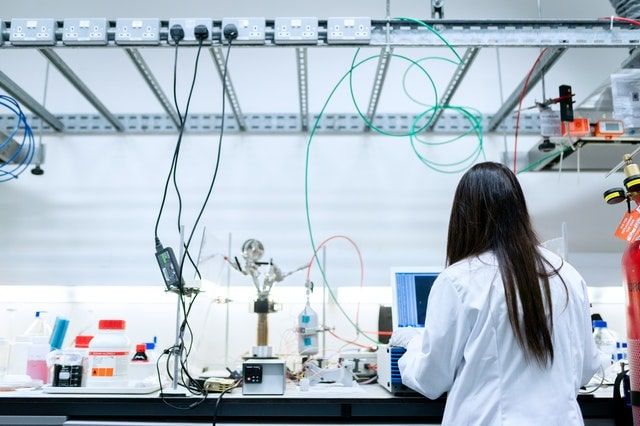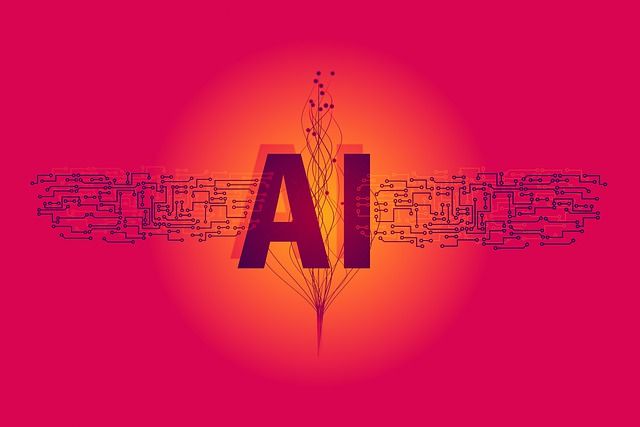Top Artificial Intelligence Research Labs
Artificial intelligence is exploding across every business, and it has become the front page of every day's news. Many technological institutes set up Artificial intelligence research labs to lead them with intelligent brains. Here is the list to explore AI strengths in different research areas.

Artificial intelligence is evolving across every industry with outbreaking innovations and has become the headline of every day's news. Machines are learned to mimic human actions or perform a series of tasks in a field known as Narrow AI. “Natural language processing (NLP) and Natural Language Understanding (NLU)”, where machines are trained with AI to diagnose better than doctors, are examples of Narrow AI.
Secondly, the better-known AI field is Artificial General Intelligence (AGI) to deploys AI for performing routine tasks. For instance, recognizing voices, identifying sounds, and customized devices for individual use.


The third stage of AI is concerned with its deployment in scientific society for improving studying and research experience. It is named Artificial Super Intelligence (ASI) to perform tasks beyond human capabilities.
R & D (Research and Development) are the leading fields where AI jumps in with its extraordinary potential. Most projects demand specific areas and conditions in highly sophisticated environments.
In August 2020, the US government granted over $1 billion to develop artificial intelligence research labs for advanced projects. The Chinese government started an initiative to build and deploy AI in every area in 2017, namely "Lead the world in AI by 2030.” Besides, China published over nine hundred patents where AI is involved in facial recognition. The Canadian government announced $518 million in March 2021 to introduce advanced technologies by developing research infrastructure. These stats show the potential of AI in the research and development sector and countries’ interest in deploying it.
Artificial intelligence attracts computer scientists and researchers as many technical universities set up AI labs to lead them with AI brains and thinkers. It requires the right talent at the right place, which is usually only possible in research labs. Here is the list of artificial intelligence research labs developed by institutions, universities, and businesses to explore AI strengths in different research areas.

1. University of Oxford, UK
The University of Oxford is committed to improving human lives by covering almost all industries throughout Europe. The university's researchers focus on applying AI in healthcare, sustainable products development, future work, and others. Moreover, two famous startups of the University of Oxford are Mind Foundry and DiffBlue, showing how their researchers blend knowledge, entrepreneurship, and inspiration.
Oxford scholars focus on a better understanding of AI and machine learning at the Department of Computer Science. Its industrial partners are DeepMind, which helps develop novel techniques to inspire living beings.
2. University of California, Los Angeles
The Dean at University of California said, “At the UCLA Samueli School of Engineering, we know the power engineering has to change lives. And that transformational power comes in many forms.” Samueli School of Engineering is a topnotch AI research spot at the University of California. Last year, its researchers published several papers, started different projects and conducted conferences. Most of their research is published in famous journals and presented in the nation’s well-known academic conferences.
Their leading project ideas are published in different journals as mentioned below:
- “Deep Learning for Person Re-identification: A Survey and Outlook” published in IEEE.
- “Universal Representation Learning of Knowledge Bases by Jointly Embedding Instances and Ontological Concepts” published in ArXiv.
- “Bio-JOIE: Joint Representation Learning of Biological Knowledge Bases” published in ArXiv and presented at BCB.

3. Harvard University
The university excels in AI research and applies for its work in a range of multidisciplinary and interdisciplinary pursuits. Their research articles are published in leading journals.
- “Protein Design and Variant Prediction Using Autoregressive Generative Models” in Nature.
- “Using Graph Convolutional Neural Networks to Learn a Representation for Glycans” published on Cell Reports.
- “HyperMorph: Amortized Hyperparameter Learning for Image Registration” showed on ArXiv.
Other significant reasons for its global acceptance as a research leader are due to its topnotch students and research experts putting their all efforts into doing something unusual.

4. Stanford Artificial Intelligence Laboratory (SAIL)
Stanford University has artificial intelligence and machine learning experts. The Stanford Artificial Intelligence Laboratory (SAIL) has come up with research experts in the AI field since 1962. It is about six decades back, and it still appears as continuously evolving with technology. Its research experts conduct extraordinary research in almost all areas of AI, including deep learning, machine learning, big data, robotics, NLP (natural language processing0, genomic, healthcare, and vision and learning. Some of its recent work and publications are:
- “ChesXtransfer: Performance and Parameter Efficiency of ImageNet Models for Chest X-ray interpretation” published in “Proceedings of the Conference on Health, Inference, and Learning.”
- “Using Wasserstein Generative Adversarial Networks for the Design of Monte Carlo Simulations” published in the Journal of Econometrics; as their economist students are focusing their study on how to implement AI in finance and economy.
- “A Review of Classification Algorithms for EG-based Brain-Computer Interfaces” in the Journal of Neural Engineering. SAIL experts also focus on neural engineering as it uses AI tools to study how the brain functions.
5. Carnegie Mellon University
It has been a leading research institute since the originators of AI introduced it in the 1950s. CMU AI joins students, staff, and faculty at the School of Computer Science from all university areas to develop the best AI team globally.


6. McGill University, Canada
The CIM (Center for Intelligent Machines) is a research group belonging to inter-faculty and inter-department established in 1985. Its primary aim was to support and promote research on intelligent technology. The field experts have focused their research on topics revolving around robotics, machine learning, reinforced learning, deep learning, computer animation, and control systems.
7. Massachusetts Institute of Technology (MIT)
MIT Computer Science and Artificial Intelligence Laboratory (CSAIL) is the most extensive campus laboratory where one or more research scientists or professors deal with several semi-autonomous research groups. Their research revolves around seven majors, including graphics and vision, AI, robotics, theory of computation, computational biology, language and learning, and finally, systems (networked systems, architecture databases, and software engineering). Director and professors at MIT said:
“For more than 50 years, CSAIL- the MIT Computer Science and Artificial Intelligence Laboratory- has pioneered new approaches to computing that improve how people work, play, and learn. Now we stand on the verge of an exciting new era ready to make great new contributions.”
- MIT researchers published their recent study on AI in ArXiv, “Grounding physical Concepts of Objects and Events Through Dynamic Visual Reasoning.”
- Their research on deep learning is also published on ArXiv as “A Statistical Viewpoint.”
- Plus, MIT-led study introduced in Nanotechnology as “Roadmap on Emerging Hardware Technology for Machine Learning.”
8. Chinese Academy of Sciences
China is one of the leading countries having tremendous potential to develop institutes to discover new prospects of artificial intelligence. Its well-known artificial intelligence research labs are in Tsinghua University, the Chinese Academy of Sciences, Peking University, Xiaomi, and Baidu. All these companies and institutes participated in the Beijing Academy of Artificial Intelligence which developed Wudao 2.0.
In the list of non-American artificial intelligence research labs, the Chinese Academy of Sciences appeared as a leading global institute and became the premier research hub for machine learning and AI projects. The central point of this hub is the School of Artificial Intelligence of the University, which started receiving students in 2017.
- Their recent work includes “Fully Convolutional Networks for Panoptic Segmentation," published in ArXiv.
- Another work was shown at 2021 Machine Learning: Science and Technology, namely "Improving Proton Dose Calculation Accuracy by Using Deep Learning.”
- “More Diverse Means Better: Multi-model Deep Learning Meets Remote Sensing Imagery Classification” published at IEEE is also the achievement of the Chinese Academy of Sciences.
9. University of California, Berkely
The excellent background of the University of California gives a better idea about its expert staff at machine learning and artificial intelligence. The research director of Google, Peter Norvig, also did his doctoral at Berkeley. BAIR (Berkeley Artificial Intelligence Research) Lab comes with research experts at NLP, machine learning, artificial intelligence, computer vision, and robotics. Over 50 faculty members teach about 300 students with postdoctoral researchers struggling to achieve new goals. Their interest includes joining AI with other disciplines, human-compatible technology, and multi-model deep learning.
Their recent published research papers are:
- “A Generalized and Accessible Approach to Machine Learning with Global Satellite Imagery” in Nature Communications.
- “Probabilistic Harmonization and Annotation of Single-Cell Transcriptomics Data with Deep Generative Models” in Molecular System Biology.
- “Provable Meta-Learning of Linear Representation” introduced in IEEE.
10. Technical University of Munich, Germany
The TUM is a higher education institute focusing on medicine, engineering, natural, and applied sciences. This interdisciplinary research university also deals with artificial intelligence considering its technical side, and works on AI for autonomous cars and AI in healthcare. Moreover, it focuses on new machine learning algorithms ranging from CV (computer vision) to physics-based simulation and network analysis. TUM connects national and international research industries and institutes with the motive to grow together.
11. University of Cambridge, UK
University of Cambridge's core research area revolves around machine learning and artificial intelligence. Its researchers developed theoretical strategies based on classical statistical education, deep learning, probabilistic learning, stochastic processes, humanoid computing, NLP, and logical learning and deployed them.
12. PyMC Artificial Intelligence Research Labs
PyMC3, developed by PyMC Labs, is the leading solution for statistical data science. As a plus point, its team launched a consultancy service and used their experience for people’s benefit. They offer a unique and highly impactful platform to resolve challenging business issues with their years of expertise in Bayesian Modeling.
13. Walmart Labs
As the technology giant of Walmart, its artificial intelligence research labs involve improving customer experience with artificial intelligence techniques. Its experienced staff strives to develop exciting technology for retailers. They work to improve their online visibility and offerings and work on the robotic potential for retail locations.
14. Lulea University of Technology, Sweden
This research institute is located in Sweden, specializing in offering limitless potentials of emerging and modern innovative technology. Concerning artificial intelligence, their primary focus is on applied AI, for instance, its significant role in improving routine life. They worked on "How AI Can Create Photo, Books, Improve Mining, and Investment Processes.”
15. University of Freiburg
The University of Freiburg has an excellent Machine Learning La (MLL) in addition to focusing on developing innovative initiatives and startups. Its primary aim is on AutoML to “Develop new state-of-art approaches and open-source tools for the topics such as hyperparameter optimization, neural architecture search, and dynamic algorithm configuration.”
16. University of Washington
The University of Washington is an extraordinary institute in technological research with influencing Amazon, its AWS, and Microsoft. UW is considered a leading NFS AI institute, and the “elite center for AI research” tag is given to the Paul G. Allen School of Computer Science and Engineering.
Their recent work on AI and ML related projects are:
- “Nonconvex Optimization for Machine Learning: Gradients, Stochasticity, and Saddle Points” In the Journal of ACM
- In Review of Financial Studies, their research is published as “Selecting Directors Using Machine Learning."
- Diabetes Care published their “Multicenter, Head-to-Head, Real-World Validation Study of Seven Automated Artificial Intelligence Diabetic Retinopathy Screening Systems.”
17. Max Planck Society (Informatics Institute)
The focus of this research institution is on computer science with significant dealing of algorithms' development and their broader applications. Their publications cover every aspect of artificial intelligence, including deep learning, computer vision, machine learning, algorithms, and robotics. This society is considered as one of the most reputed research institutes in Europe with its efficacy in multidiscipline and fields. Max Planck Society has about 86 institutes, and the Max Plank Institute of Intelligent Systems is considered one of them. Its two campuses are in Tubingen and Stuttgart.
The researchers published their work in:
- IEEE regarding “Towards Casual Representation Learning.”
- ACM Transactions on Graphics regarding “Real-Time Deep Dynamic Characters.”
- International Conference on Learning Representation about “Spatially Structured Recurrent Modules”
18. IBM Research Lab
The IBM Research Lab comes with a strong business orientation, and its professionals are committed to improving their client’s productivity and finding potential areas to grow their privacy and cloud services. An affiliate group, namely IBM AI Research, shares a toolkit to detect and extract bias from an intelligence system (if detected).
IBM artificial intelligence research labs in India joined IIT Delhi in November 2018 to better research the potential benefits of working on artificial intelligence. They struggled to discover innovative AI strategies to help institutes, firms, and companies to make better decisions about their business with advanced predictions made by AI. IBM Researchers joined their thoughts with the students and experts of the Department of Computer Science and Engineering at IIT Delhi. They struggled to find the issues in untrained intelligent systems and find new ways to introduce critical features in AI systems, including inferencing, reasoning, and comprehension.
19. The Institute for Ethical AI and Machine Learning
The institute focuses on developing and improving research on machine learning with the mission to create responsible and fair machine learning systems only. They don’t rely on others in building their frameworks like AI-RFX Procurement Framework (open-source) that comprises templates. The domain specialist places them together to help out industry practitioners desiring to procure artificial intelligent systems.

20. Bosch Center for Artificial Intelligence (BCAI)
As one can get from its name, this research institute focuses on artificial intelligence mostly on its applied part. It was introduced in 2017 to deploy AI techniques on the products and services offered by Bosch. The experts here work to improve our daily tasks, including bringing mobility, automation, and technology for consumer support. If we see their published research work, it is based on two fields majorly: technical, discussing strategies and procedures) and applied where their real-life applications and results are focused. The researchers deal with AI modeling, deep learning, decision making based on understanding, large-scale intelligence, multi-agent planning, and reinforced learning.
21. Samsung Research & Development
Samsung India declared that the electronic giants require over 1000 engineers from topnotch institutes to research and develop innovative technologies based on AI. They prefer experts from NITs, IITs, and IIITs who have an excellent understanding of machine learning, computer vision, the Internet of Things , 5G, and signal processing. The company also share their plans of hiring over 2500 engineers to perform extraordinary research and develop techniques that are still unknown to the world in coming years.



